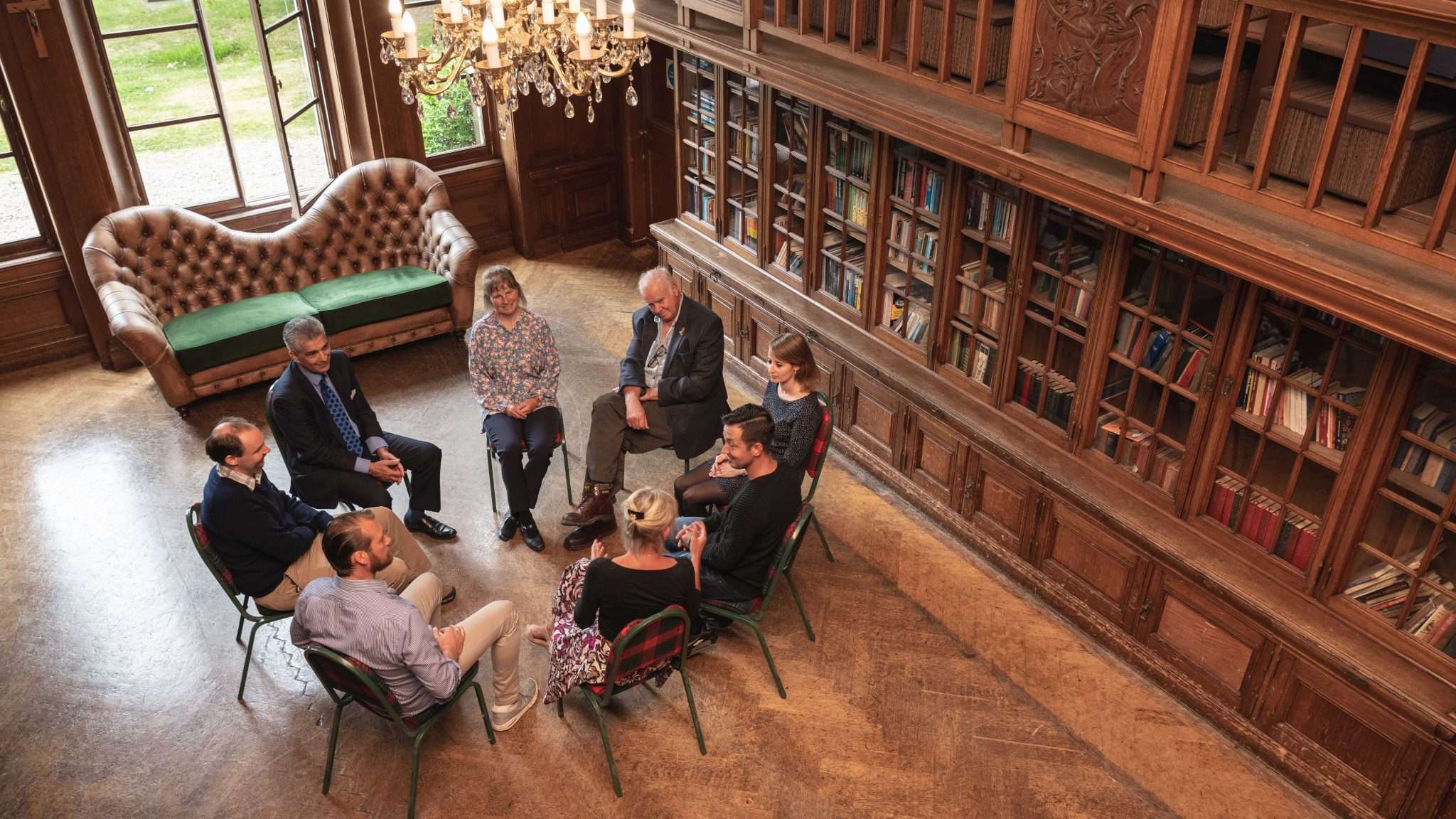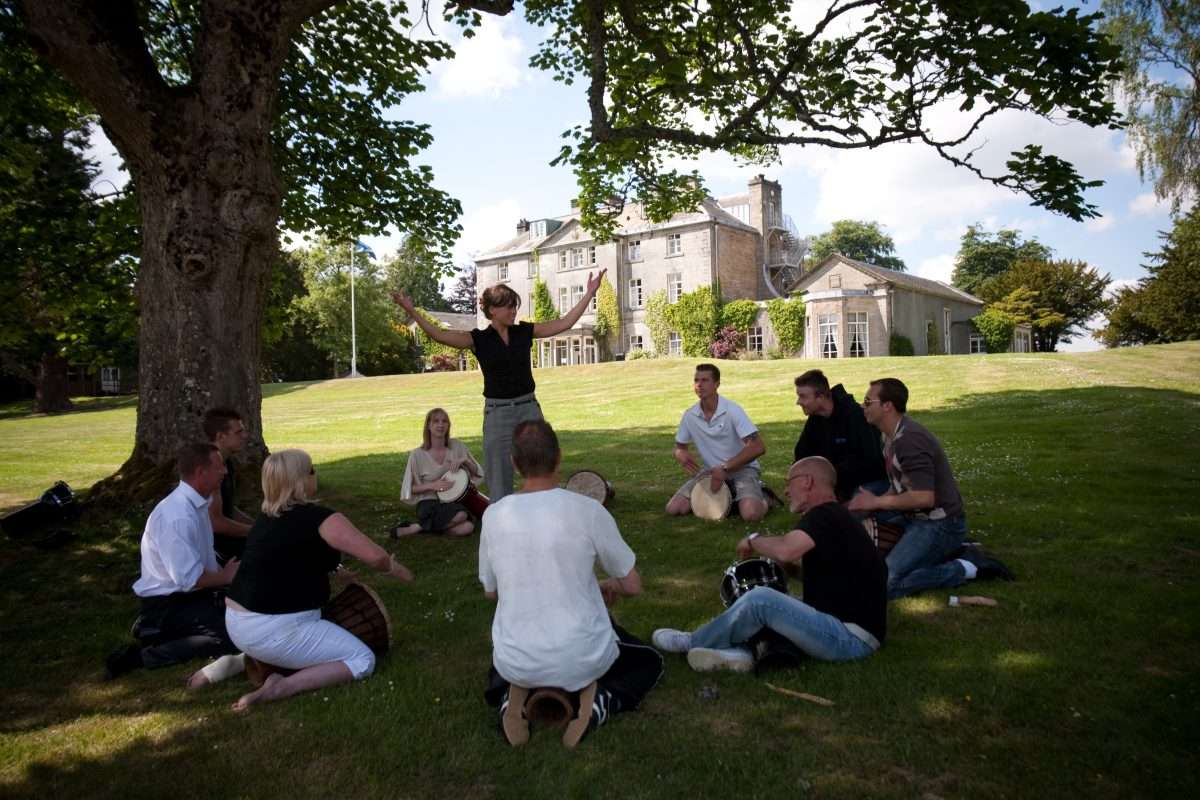Castle Craig’s Consultant Therapist, Chris Burns shares his journey in recovery, reflecting on the pain, challenges and spiritual growth he experienced along the way.
Recovery is difficult. There is a lot of pain associated with addiction, but it doesn’t just go away when you sober up. There is pain in recovery too, but it gets better. Yet pain is an important part of the process– as Bill W, AA Co-founder put it “pain is the touchstone of spiritual progress”. He is saying, in effect, that learning to recognise and accept our pain is the first step towards recovery through spiritual growth.
Learning to play the highland bagpipes is difficult and painful as well, especially for others. I tried it in early recovery when I sobered up. Recovery was far harder to get the hang of, but the benefits were infinitely greater in the end. I’m glad to say that my recovery has lasted much longer than my piping. The neighbours are pleased about that too. They’ve started talking to me again.
When I first came to Scotland, I was less than one year into recovery and still feeling my way in this new, sober but sometimes frightening world. Emotionally, I was still quite raw in places and needed to tread carefully as I acquired new healthy ways of doing things. I was by no means sure that recovery was going to work for me – long term.
Recovery of course was my priority, and taking the opportunity to work at Castle Craig in 1988 was the best thing I ever did. Experiencing the power and support of being in a therapeutic community helped me through those crucial early months and years. For that, I am forever grateful. And that’s not an idle cliché – I still practice gratitude daily because it’s not just a nice warm feeling – gratitude is also a mental attitude which should translate into daily action – giving service, helping others and as a weapon against resentment, fear and anxiety.
If you’ve suffered from serious addiction, especially substance abuse or gambling, then you have undergone a form of trauma; addiction hurts you mentally, physically and spiritually, and produces in many people a lot of emotional damage that takes both time and therapeutic treatment to heal.
My time in rehab was where the radical changes began to happen and such was the depth of my denial and personal dishonesty generally, that a lot of therapeutic interventions in the form of challenges and confrontations were needed, with a high degree of tough love.
I left rehab a different person but still very much at the start of a long recovery journey. My body was definitely on the mend but emotionally I was bruised and sore. The theory of staying sober was easy to grasp, it was summarised in the three legacies of AA – Recovery, Unity and Service – which meant don’t pick up a drink, stick with the winners and help others. But learning the theory doesn’t mean that you can ‘walk the walk’. That only comes through experience – trial and error and constant practice.
My first few days out of rehab were the most crucial. I’d relapsed so many times in the past that those early days were full of insecurity and anxiety – I just didn’t trust myself and no one else did either. I got to a meeting on my first day back home and my Higher Power gave me a lifeline in the form of a very kind and long-sober AA member who offered to be my sponsor. Without him, I now think, my sobriety might have ended that day. They say the Higher Power works through other people and Andrew (his name) proved this to me.

For the next few weeks, he was there for me when I wanted him, and often when I didn’t want him and was trying to isolate (a fatal warning sign of relapse for me). He would sometimes just come and sit with me for hours and talk about all kinds of things – but it kept me sober. Andrew was my first of many wonderful AA friends and he is high on my gratitude list today.
At the time, learning the bagpipes seemed logical – I was in Scotland, home of the pipes, and in need of some new interests; and music is said to be ‘balm for the soul’. They turned out to be more difficult than I had imagined and even my teacher, a kindly retired piper from the Black Watch, described me as ‘challenging’. Yet, over the months of our regular meetings, I did learn the basics and eventually managed to master a tune or two. It actually became enjoyable (at least to me, though not perhaps to all). I even got to play at a wedding.
Practice may not have made perfect, but practice had made a good result possible. And I had acquired a new interest. And it did have other benefits that were relevant to my sobriety: It gave me something to think about and do when thoughts of drinking appeared, or even when they didn’t appear. It gave me confidence that I could do something that I’d never tried before – what was needed was determination and practice. It gave me new friends. And perhaps most importantly, it gave me a sense of satisfaction and general well-being that I wanted to hang on to, and I started to believe that I could make a success of things if I really tried. Recovery could be the same, I thought.
During those few months of early sobriety, learning the pipes became a kind of metaphor for my recovery because their requirement of determination, willingness to practice and acquire new routines, in an orderly and controlled manner so as to produce music, served me equally well as
I learned recovery. I’m not suggesting that everyone should take up piping when they leave rehab, nor that they give it or any other interest priority over 12 Step meetings – my point is that there are obvious benefits in trying new things and acquiring new interests, and there may also be some unforeseen benefits as well. Sobriety not only gives us a new life, it gives us a new identity as well, and in that, we have an element of choice. Taking that step into the unknown could do wonders for your self-esteem, your confidence and your enjoyment of life. Isn’t that worth a try?



